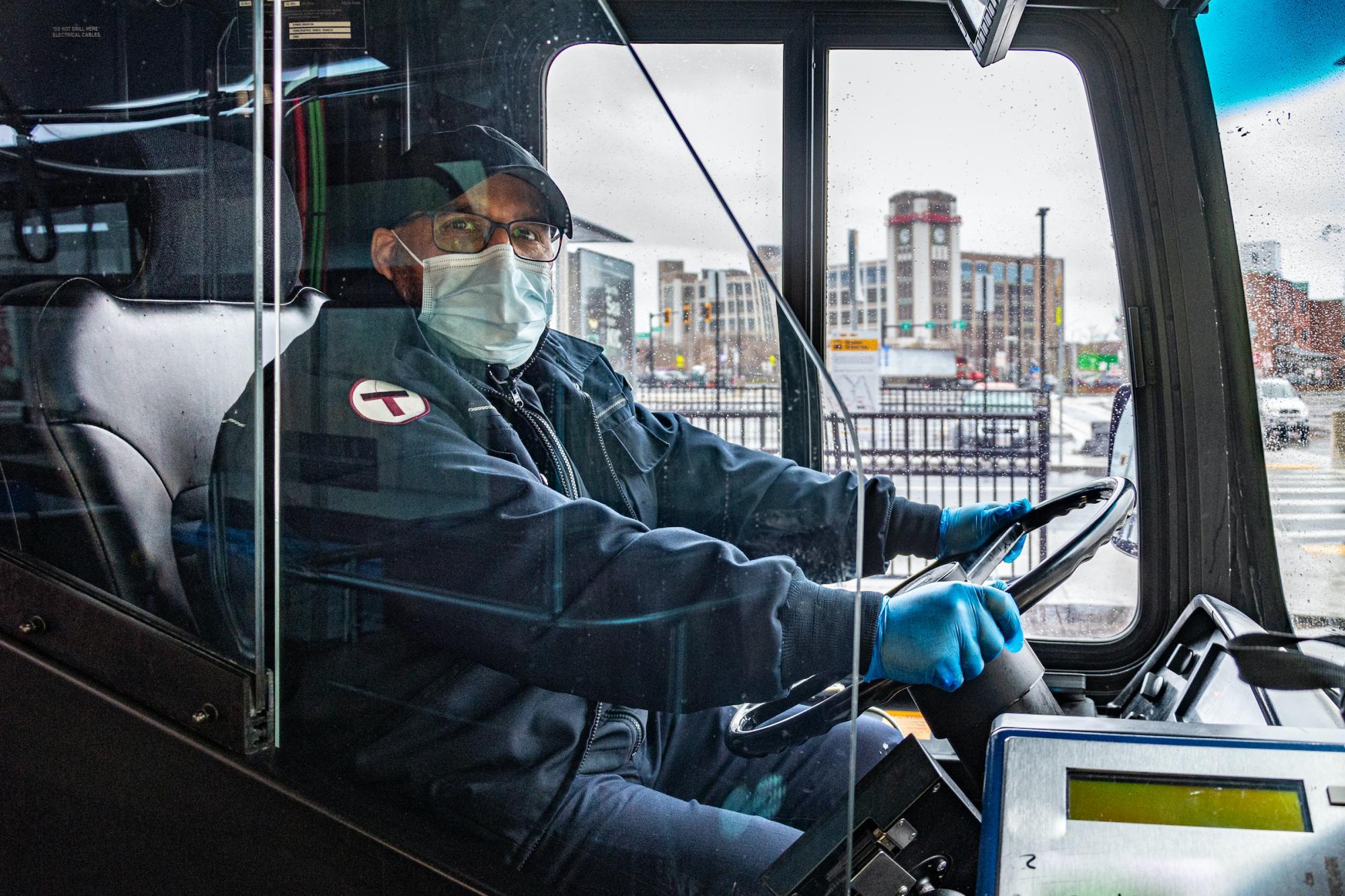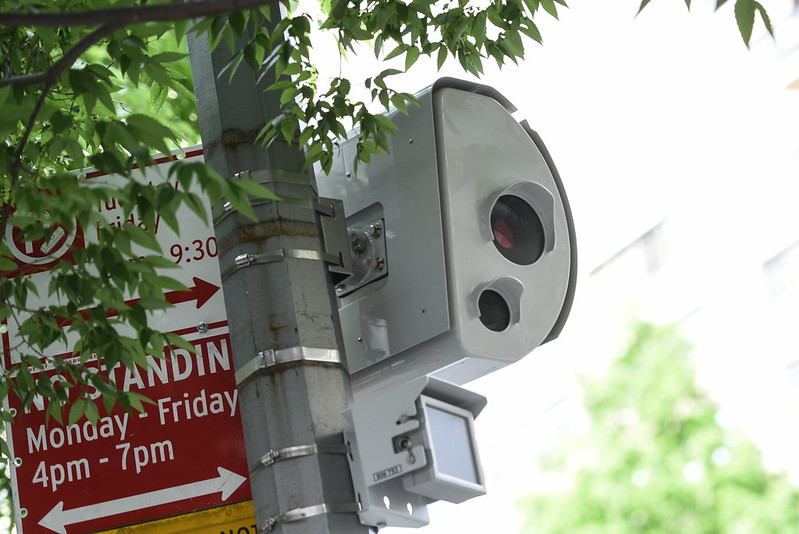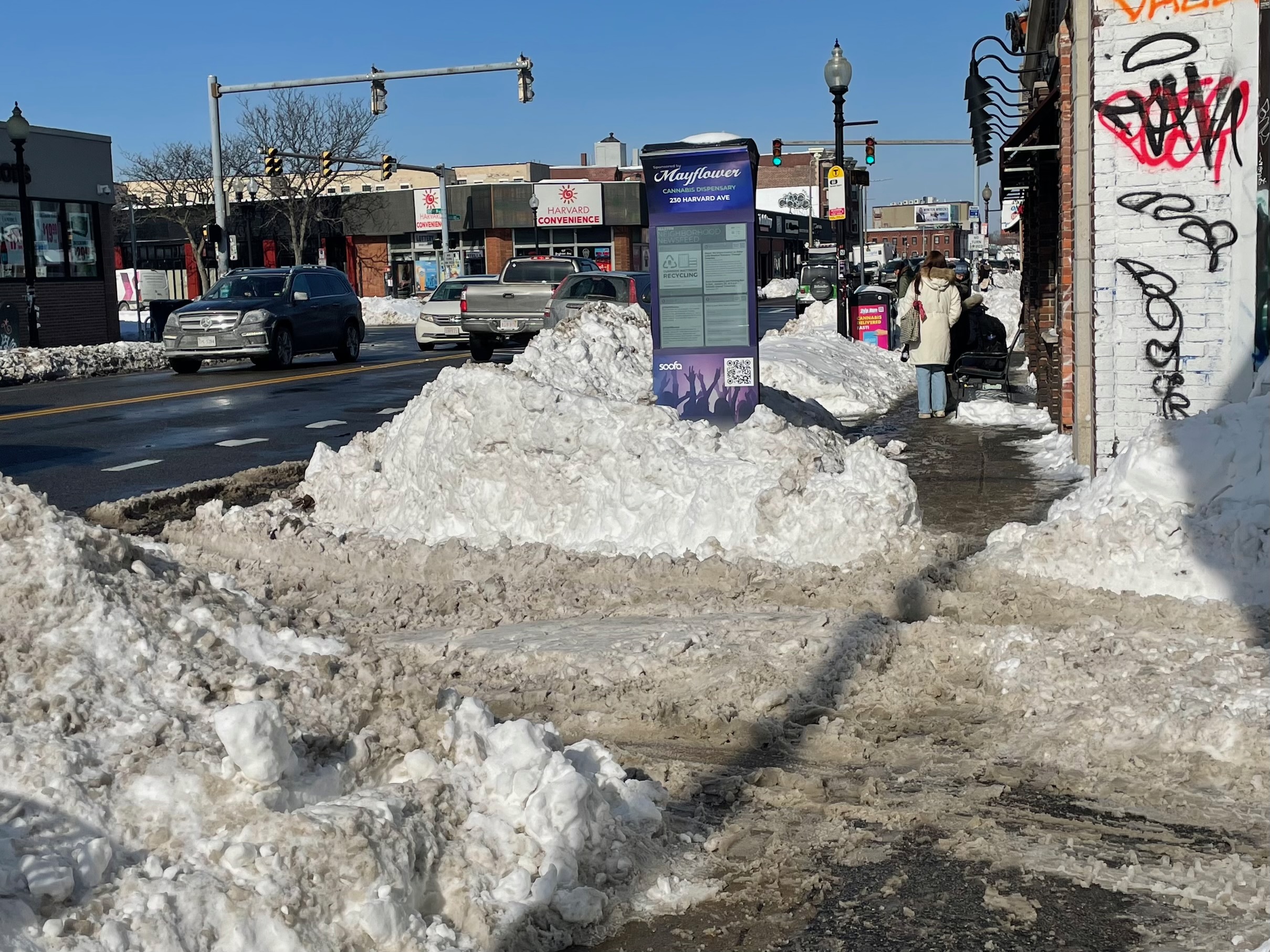A large coalition of community organizers, labor and business groups, and environmental organizations is calling on Massachusetts lawmakers to provide emergency funding to the state's transit agencies in order to avoid draconian service cuts from severe budget shortfalls in the coming years.
For the past several months, the T has been planning for a possible $300 to $600 million budget shortfall in fiscal year 2022, when federal relief funding from the CARES Act is expected to run out, but ridership and fare revenue are expected to remain much lower than usual.
So far, fare increases haven't been a major part of the conversation - ridership is so much lower than usual that higher fares wouldn't have much of an impact - but the T is considering cuts to its bus and rail service to save money, and postponing or cancelling some construction projects to shift funds from its capital budget into the operational budget.
In a joint statement issued Monday morning, a broad coalition of over 30 organizations asked state lawmakers and MBTA board members "to take action now to ensure the MBTA has the proper resources to protect rider and employee safety, keep transit moving, and bolster the state’s long-term economic recovery."
The coalition specifically asked that the Fiscal and Management Control Board (FMCB) postpone any decisions on service cuts until the Legislature completes its session, avoid fare hikes, and maintain its support for long-term capital improvements, including new bus facilities and the stalled "Rail Vision" transformation of the commuter rail system.
"As residents continue to cope with the economic and health repercussions of the pandemic, drastically decreasing bus, subway, and commuter rail service will only exacerbate the inequities highlighted by the current crisis," said Jennifer Benson, President of the Alliance for Business Leadership, in a press release accompanying the coalition's statement. "Transit is an essential government service, and should be prioritized as such by MBTA leadership."
But most importantly, the coalition called on lawmakers on Beacon Hill to support the T with the funding it needs to avoid shutting down critical services.
As reported over the weekend in the Boston Globe, the Legislature has lots of unfinished business, but it's been over 70 days since lawmakers have held a formal session. The Globe reports that a new state budget, which could include increased operating support for the T, is unlikely to be finished "until next month, at the earliest."
During the public comment period of today's FMCB meeting, Boston Mayor Marty Walsh joined the chorus of objections to planned service cuts, citing their potential impact on the city's essential workers.
"Right now, no one is struggling more than our working families, low-income communities, and communities of color," Walsh told the FMCB in a pre-recorded address. "And it's the people in these same communities who keep our grocery stores stocked, keep our buildings clean, and have cared for people in our hospitals throughout this pandemic... These workers deserve our thanks, not a fare increase or a service cut."
MBTA management may be inclined to agree, but until the Legislature or the federal government can commit to more financial support, the agency made clear that it will continue to plan for service cuts as a backup option to keep the agency financially solvent. Any cuts for the new fiscal year, which begins next summer, will require approval from the FMCB this winter, several months before they take effect.
Later in Monday's board meeting, MBTA Chief Financial Officer Mary Ann O'Hara revealed that the T's budget shortfalls could begin even sooner than previously expected, based on updated ridership scenarios that forecast a slower recovery.
The agency's current operating budget for 2020-2021 assumed that ridership and fare collections would start climbing in January, and reach 60 percent of pre-pandemic levels by the summer of 2021. Newly updated planning scenarios assume that ridership will recover much more slowly, and remain considerably under pre-pandemic levels through the summer of 2022. That would leave a $54 million budget gap by the end of the current fiscal year, in addition to larger budget deficits in 2022.






